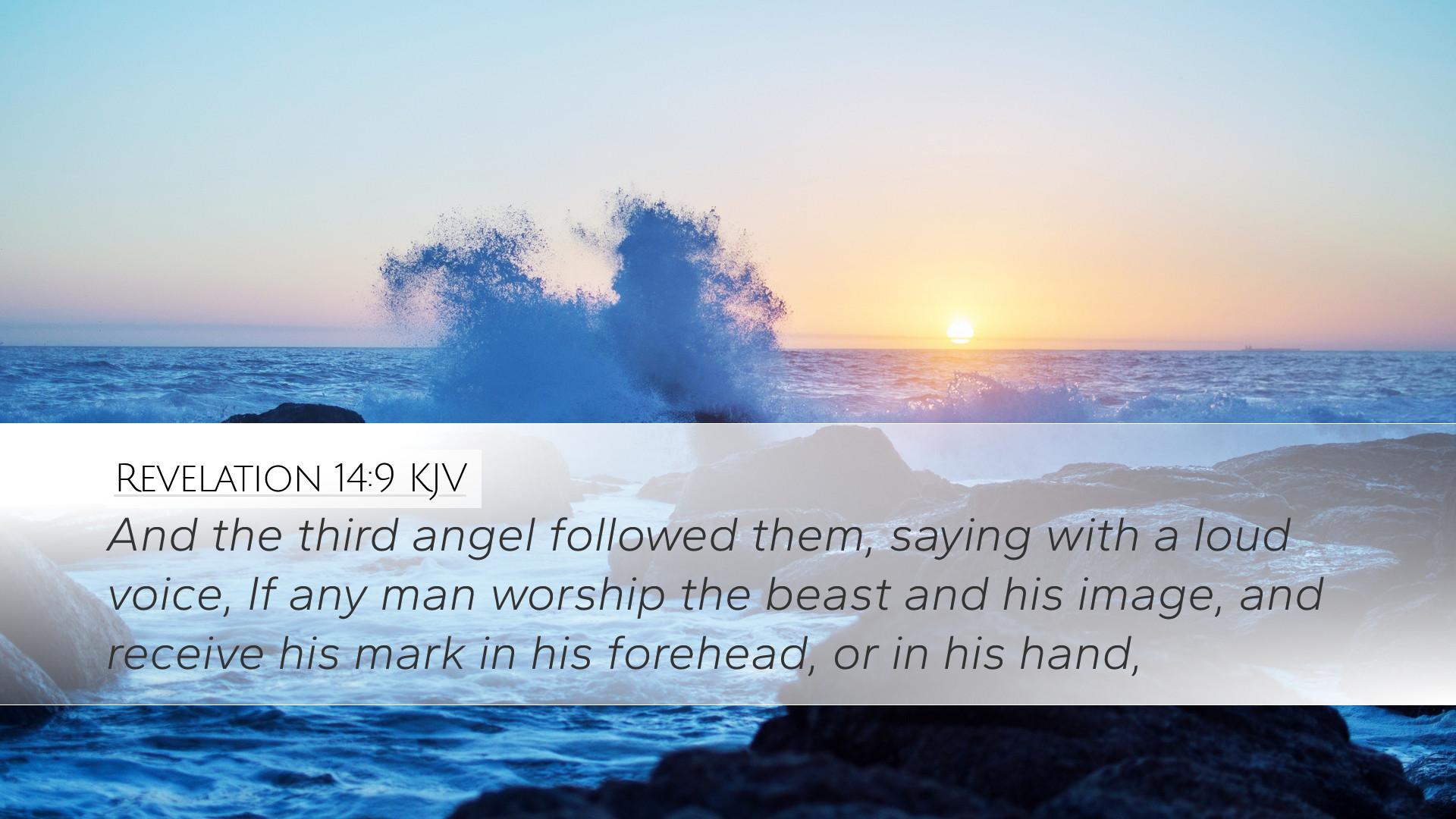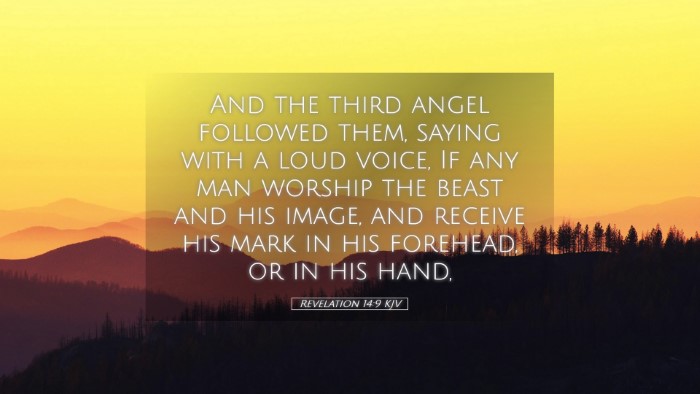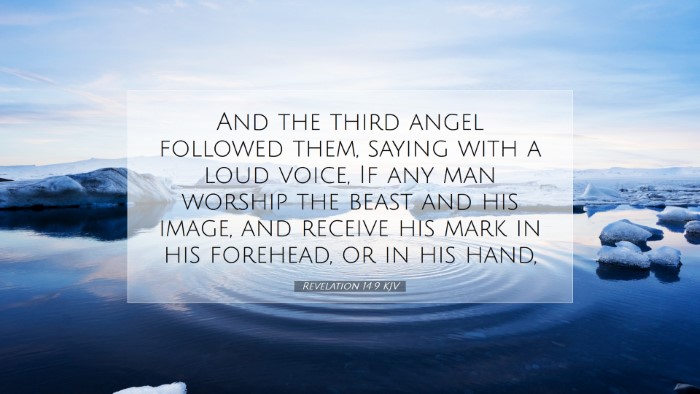Commentary on Revelation 14:9
Verse Context: Revelation 14:9 states, "And the third angel followed them, saying with a loud voice, If any man worship the beast and his image, and receive his mark in his forehead, or in his hand." This verse is pivotal in the apocalyptic narrative of John's Revelation, serving as a warning against idolatry and false worship.
Introduction
The Book of Revelation, often laden with vivid imagery and profound symbolism, provides insights into the cosmic conflict between good and evil. Revelation 14:9 highlights a critical juncture in this narrative, emphasizing the severe consequences for those who choose to worship the beast. In examining this verse, we draw from esteemed biblical scholars such as Matthew Henry, Albert Barnes, and Adam Clarke, whose commentaries shed light on the theological, ethical, and eschatological implications of this passage.
Exegesis of Revelation 14:9
1. The Identity of the Beast:
Matthew Henry elucidates that the "beast" symbolizes a profound manifestation of evil, often interpreted as the political and religious systems that oppose God. The beast represents those manifestations of authority that demand allegiance contrary to God’s command.
2. The Image and the Mark:
Albert Barnes elaborates on the "image of the beast" as an idol that demands worship, reflecting humanity's propensity to create what is unholy. This act of worship is considered a direct rebellion against God. The "mark" signifies an individual's allegiance to this system, serving as a seal of identity for those who reject God's dominion.
3. Worship in Context:
Adam Clarke highlights that worship is not merely a ritual act but represents an internal disposition towards God or the beast. This internalization compels individuals to act in line with their chosen object of worship. Clarke emphasizes the gravity of choosing allegiance; it reflects a person's fundamental ethical and spiritual orientation.
The Theological Implications
1. The Nature of Idolatry:
This verse underscores the seriousness of idolatry, portraying it as a conscious choice to forsake God for transient, worldly powers. Henry notes that idolatry has always been detestable to God and serves as a backdrop to the trials faced by His faithful. The choice to worship the beast invites divine wrath, which encapsulates God’s justice against rebellion.
2. Free Will and Human Responsibility:
Barnes emphasizes the importance of human agency in this passage. The possibility of worshiping the beast highlights the free will granted to humanity. This choice indicates that individuals bear ultimate responsibility for their decisions in the face of divine truth.
3. The Reality of Judgement:
Clarke reflects on the eschatological dimension of this text, revealing a stark warning about the consequences of disobedience. The judgment referenced here delineates a point of no return for those who have chosen to follow the ways of the beast instead of the ways of God.
Ethical Considerations
1. The Contemporary Relevance:
This verse speaks resoundingly to the church today. Henry posits that the temptation to follow worldly systems persists; hence, believers must be vigilant not to conform to societal norms that oppose God’s teachings. The ethical implications of allegiance are significant, where failure to discern this can lead believers into spiritual compromise.
2. Identity in Christ:
Barnes notes that receiving the mark of the beast contrasts sharply with having one’s identity sealed in Christ (Revelation 7:3). This dichotomy calls Christians to evaluate their loyalties. The critical question posed by this verse is who or what do we ultimately choose to worship and rely upon in our lives?
Conclusion
Revelation 14:9 serves as a profound exhortation for the contemporary church, reminding believers of the dangers of idolatry, the importance of discerning true worship, and the significance of their choices in a world laden with distractions and temptations. This commentary pulls from the insights of Henry, Barnes, and Clarke to elucidate the complexities of this verse, encouraging a deepened understanding of the implications of worship in the life of a believer.
As pastors, students, theologians, and scholars engage with this text, they are called to explore the rich theological depths and ethical challenges it presents, ensuring their lives and teachings reflect fidelity to Christ amidst a world that often beckons towards the beast.


